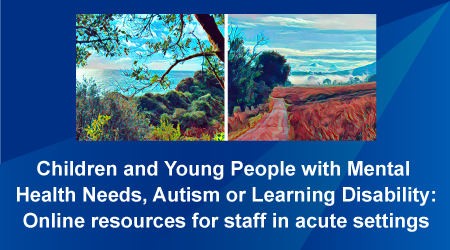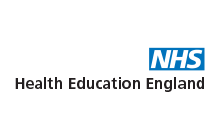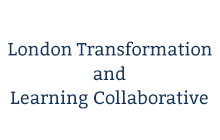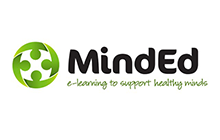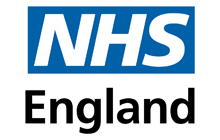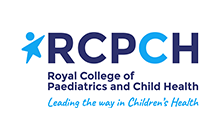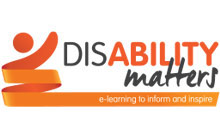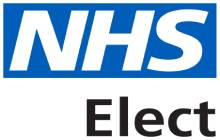About the Children and Young People with Mental Health Needs, Autism or Learning Disability programme
Online resources for staff in acute settings
Healthcare staff in acute care hospital settings have shared that they would like to enhance their confidence and skills to care for children and young people (CYP) with mental health needs, autism or learning disability and their families or carers.
This open access platform is designed to help staff from all professions rapidly access resources to develop their skills and provide them with tools to improve their confidence. All resources have been collated, curated or developed to ensure staff can enhance their own clinical skill set, and provide the best possible care to children and young people.
Most resources should take 20 minutes or less to review. Additional “Further Resources” folders direct users to extended learning opportunities, including elearning packages hosted in other elfh programmes and policy documents, creating a one-stop-shop for learning needs in these fields. Development of this platform has been led by users with healthcare systems, future learners and experts with lived experience involved in every stage (see the “Our approach” and “Co-creation” sections below).
-
Aim:
These resources, for both learners and educators, aim to improve the skills and confidence of colleagues from all professions to safely care for children and young people by enabling them to:
- recognise and care for children and young people (CYP) presenting with mental health needs, autism or learning disability
- safely plan and manage physical and mental health needs and escalate risk as appropriate
- communicate effectively with CYP, their families, and carers
-
Our approach:
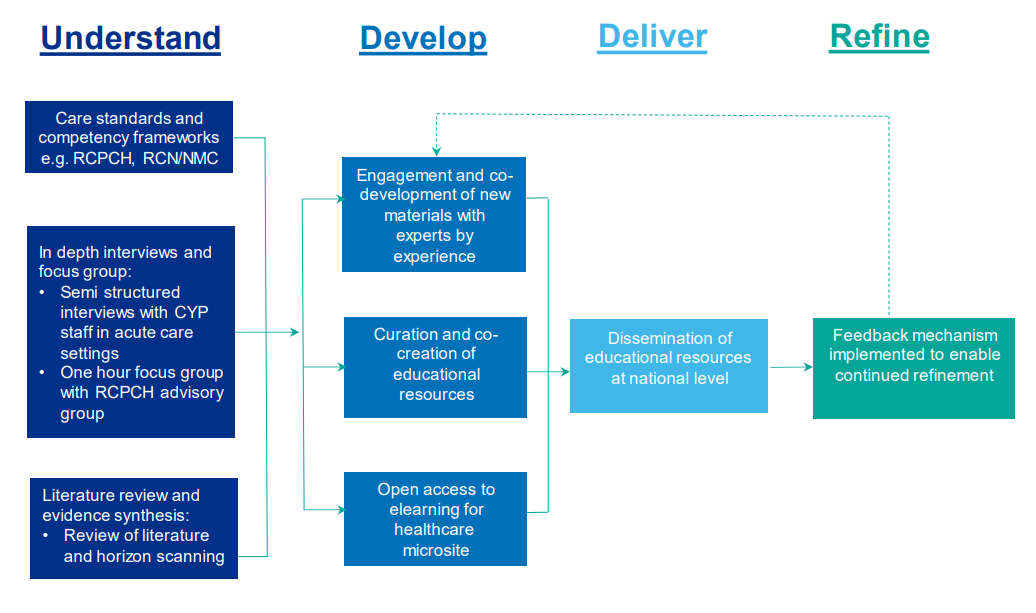
The programme aim was achieved through 4 key phases, supported by robust governance and assurance:
1. Understand
- Care standards and competency frameworks (for example, Royal College of Nursing/The Nursing and Midwifery Council, Royal College of Paediatrics and Child Health)
- In depth interviews and focus group:
– semi structured interviews with CYP staff in acute care settings
– 1 hour focus group with RCPCH advisory group - Literature review and evidence synthesis:
– review of literature and horizon scanning
2. Develop
- A programme map of the key domains, sub domains and categories that content should be mapped to
- Curation and co-creation of educational resources for learners, educators and systems onto this elearning for healthcare (elfh) microsite, for care in the emergency department, paediatric wards and other acute settings where children and young people are cared for
- Engagement and co-development of new materials with experts with lived experience
- Open access to elfh Hub
3. Deliver
- Dissemination of educational resources at a national level
4. Refine
- Implementation of a feedback mechanism, to enable continued refinement
-
Co-creation:
This programme has been co-created with subject matter experts, those who are “experts with lived experience”, and a Clinical Education Reference Group of healthcare professionals from across the UK and the spectrum of clinical specialities and multiple organisations and agencies who specialise in these areas.
Every effort has been made to utilise content that is co-produced by those with lived experience. Where this was not possible, we have remained committed to illustrating the service user and carers’ voices, if available.
-
Why terminology matters

Careful consideration has been given to the use of inclusive language, CYP’s, and parent/carers’ preferred terminology, and the views of clinical experts in this area. However, this programme was developed rapidly by collating pre-existing materials and some resources may use language now considered outdated. We are unable to alter content created externally, but have still chosen to include certain resources where they add value and enhance the resources available to users.
This downloadable glossary of terms (PDF, 301KB) shares with our users the rationale behind choices we have made relating to language, and we hope it will help you to better understand the nuances.
How to use the Children and Young People with Mental Health Needs, Autism or Learning Disability programme
Step 1: sign in to the learning platform using your elfh Hub login details. If you do not already have one, you can register for an account. If you have any issues, check out this Help and Support page
Step 2: explore the multimedia resources using this flow chart as a guide and to see the overarching folder structures / programme map
Step 3: share any new resources or feedback with our team at Learningnetwork@nhselect.org.uk
Step 4: tell your colleagues about the programme by sharing the programme link or with this downloadable poster (PDF, 462 KB)
-
How to access the elfh resources
The Children and Young People with Mental Health Needs, Autism or Learning Disability programme houses free, open access resources.
In order to access the programme, you will need an elfh Hub account. If you do not have one, then you can register by selecting the Register button below.
To view the Children and Young People with Mental Health Needs, Autism or Learning Disability programme, select the View button below. If you already have an account with elfh Hub, you will also be able to login and enrol on the programme from the View button below.
Registering large numbers of users
If you are a HR, IT or practice manager and would like to register and enrol large numbers of staff within your organisation for access onto the Children and Young People with Mental Health Needs, Autism or Learning Disability programme, please contact elfh directly.
More information
Please select the following link for more information on how to use the elfh Hub.
-
Add this programme to your phone home screen for quick access
You can add this programme page on your phone by accessing your browser settings or share settings and selecting “Add to Home Screen”. Please note steps vary between devices. On an iPhone tap the “share” icon
 and then “Add to home screen”.
and then “Add to home screen”.
Overarching resources
 This overarching domain offers the user rapid access to:
This overarching domain offers the user rapid access to:
- national guidance, useful standard operating procedures and strategic positions in all areas of this programme
- key websites for professionals, CYP, and families or carers
-
Overarching websites
- NICE – national guidance
- Mental Health Act – government document
- Royal College of Psychiatrists – educational resources and guidance
- MindEd – educational resources for healthcare professionals from Health Education England elearning for healthcare (HEE elfh)
- NSPCC – charity specialising in protecting children from abuse
- Anna Freud Centre – resources for anyone supporting CYP with mental health needs
- Child Outcomes Research Consortium – for CYP with learning disability, autism, or mental health needs
- Disability Matters – useful resources and e-learning for disability
For Professionals and Children and Young People, and families or carers:
- Healthy Teen Minds – Crisis Tools – relevant to anyone who may find themselves supporting a young person in crisis including parents, carers and professionals
- We Can Talk – free training for anyone working in acute hospitals who wants to improve the experience of children and young people in mental health crisis
- Royal College of Psychiatrists – Medical emergencies in eating disorders (MEED): Guidance on recognition and management
- Young Minds – support for CYP with mental health needs and their families
- Mind – support and advice for CYP with mental health needs
- Beat eating disorders – eating disorders specific website
- National Autistic Society – support for autistic CYP
- Mencap – support for CYP with a learning disability
- British Institute of Learning Disabilities – help for those supporting people with disabilities and complex needs
Featured resources designed for this programme

This section highlights a selection of resources which have been designed specifically for this programme and include the voice of children and young people with lived experience. We remain committed to identifying and hosting resources on this site that incorporate the voice of children and young people, their parents and carers wherever possible.
-
Paediatric restrictive practices and nasogastric feeding guidance
Paediatric restrictive practices and nasogastric feeding guidance
This guidance is for all involved in the care of a children or young person with an eating disorder, who is being cared for in an acute care setting, such as on a Paediatric Ward or Emergency Department (ED), and:
- has a high impending risk to life from their eating disorder – as assessed using the Medical Emergencies in Eating Disorders (MEED) guidance
- nasogastric tube (NGT) feeding is actively being considered
- restraint may be required if the children or young person is unable to understand the severity of their illness, unwilling to co-operate, or no other option can be found to treat them
Paediatric restrictive practices and nasogastric feeding guidance
-
Art through CYP Lived Experience of Mental Health
Art through CYP Lived Experience of Mental Health
Collection of Art work completed by CYP with lived experience of mental health presentations. The art work and associated message and statistics for a range of mental health difficulties, illustrates the CYP voice describing their experience and key messages they wish health professionals to understand about the nature of the challenges they have faced.
-
Communication Toolbox
Communication Toolbox
This communication toolbox provides links to free resources to download from a variety of sources including NHS trusts across the UK and access to a range of communication tools for your hospital setting.
-
Hospital Passports for Learning Disability or Autism
Hospital Passports for Learning Disability or Autism
A guide to Hospital Passports. See why hospital passports are such an important reasonable adjustment, and review a selection of hospital passports available.
-
Top tip infographics
Top tip infographics
These infographics have been created to provide top tips from YoungMinds involvement toolkits and the NHS England mental health nurse’s toolkit.
-
Reflective learning on self-harm
Reflective learning on self-harm
This scenario based reflective learning activity is designed to facilitate the learning and development of professionals seeking to better their knowledge in recognising and caring for children and young people who self-harm.
The scenario activity will cover the following topic areas:
- Methods of self-harm
- Frameworks for understanding
- Myths and facts about self-harm
- Triggers for self-harm
- Legal frameworks and self-harm
- Risk and suicidal thoughts
- Communication and self-harm
- Resources for healthcare staff, parents/carers and young people
A reflective view from a parent with lived experience
“Coming to hospital when you are not well is likely to be very stressful and distressing for a child or young person who is autistic, has a learning disability, or a mental health need. It is also likely to be worrying for their family or supporter. 
Your hospital trust may already have thought about this and put in place plans to help, such as hospital passports or other reasonable adjustments like allowing for quieter, less crowded spaces. You may have completed the Oliver McGowan Mandatory Training. Learning disability nurses may also be on hand to help. If you know the child or young person is expected at your hospital, you may have been able to help them, or their family prepare in advance and to make some preparations for communication and the environment too.
As with all your patients, do not forget to introduce yourself, welcome and reassure them and their family. Every child and young person’s communication and other needs (such as their sensory processing needs) will be unique to them. Taking a personalised approach is essential. They may be able to help you with this or have information to share. Asking and listening to them matters.
All these resources are designed to help you understand these issues better and to be able to access communication and other resources for young patients in your care should you need them.”
– Mary Busk, parent and Care and Welfare Deputy for Alex who is autistic and who has a severe learning disability
Learning domains

Most content has been categorised across 6 domains. Within each domain folder you will find resources for different areas of care, resource types and durations. You may also find a “Further Resources” folder, signposting you to additional learning resources.
-
Legal
 This domain offers resources to assist in understanding the law in relation to children and young people with mental health needs in acute settings, the implications for practice and clinical scenarios involving decision-making. The resources provide clear and practical information to help users navigate legal areas and are based on the most applicable CYP acute care legal frameworks as well as the voice of the service user to ensure equal perspectives of CYP care are considered.
This domain offers resources to assist in understanding the law in relation to children and young people with mental health needs in acute settings, the implications for practice and clinical scenarios involving decision-making. The resources provide clear and practical information to help users navigate legal areas and are based on the most applicable CYP acute care legal frameworks as well as the voice of the service user to ensure equal perspectives of CYP care are considered.The resources address topics relating to:
- Mental Health Act
- Mental Capacity Act
- Deprivation of Liberties
-
Learning disability and autism
 Giving those with lived experience a voice helps us to better understand their unmet needs. This domain provides practical information on how to adapt communication and provide a wide range of reasonable adjustments to clinical practice and service delivery in order to provide an equal service.
Giving those with lived experience a voice helps us to better understand their unmet needs. This domain provides practical information on how to adapt communication and provide a wide range of reasonable adjustments to clinical practice and service delivery in order to provide an equal service.The resources include opportunities to further understanding of:
- learning disability and autism
- the interface of mental and physical health in this patient group
- diagnostic overshadowing
- personalised support including communication tools, hospital passports and reasonable adjustments
-
Mental health
 This domain offers a range of material to identify, understand, manage, and engage with mental health presentations in an acute setting. The breadth of the information available includes:
This domain offers a range of material to identify, understand, manage, and engage with mental health presentations in an acute setting. The breadth of the information available includes:- quick guides to different mental health conditions
- lived experience from individuals with mental health needs
- signposting information for the young person/their carers allowing the clinician to provide first line, prevention and positive support
- practical support in considering some “grey” areas of mental health and complexities of patient journeys, including reducing restrictive practice and transitioning to adult services
-
Outcomes

To ensure alignment to the young person and family/carer experience, “360” perspective of care and the service user “voice” should form a key component of delivery of care and outcome measures. This domain provides practical information to support the recognition and use of “lived experience” in co-production as well as signposting to clinical standardised measures to support greater understanding of assessment and treatment needs of the CYP population.
The resources are split into:
- routine outcome measures
- service co-production
-
Safeguarding
 This domain offers generic safeguarding material allowing insight and practical advice into safeguarding recognition, types of safeguarding and the role and interaction the clinician has in this area. The aim is to improve confidence in recognition, reporting and management of a breadth of safeguarding considerations, unique to the CYP population.
This domain offers generic safeguarding material allowing insight and practical advice into safeguarding recognition, types of safeguarding and the role and interaction the clinician has in this area. The aim is to improve confidence in recognition, reporting and management of a breadth of safeguarding considerations, unique to the CYP population. -
Staff support and supervision
 Meeting the needs of this patient population can have an impact on staff physically, mentally and emotionally. This domain highlights and reinforces areas of support for resilience, self-care, supervision, and reflection, in the hope the programme can offer access to material that validates and understands these experiences.
Meeting the needs of this patient population can have an impact on staff physically, mentally and emotionally. This domain highlights and reinforces areas of support for resilience, self-care, supervision, and reflection, in the hope the programme can offer access to material that validates and understands these experiences.
Rapid Access Lists
Designed as quick introductions to an area of interest, learning pathway, or experience-appropriate content. Some also have “further resources” for the learner to extend their exploration of the subject matter or “Carer or parent resources” that are great to share with the young person and their carer.
- CYP mental health – an introduction
- Eating Disorders
- Legal Frameworks
- Self-Harm
- Snapshot of Certified Short Courses in CYP Mental Health
- Support and Supervision
- Understanding children and young people who are autistic or have a learning disability
- Reasonable adjustments in communicating with autistic children and young people or those with a learning disability
- Reasonable adjustments in the environment when caring for autistic children and young people or those with a learning disability
Further lists are in development. If you have suggestions for lists that would be useful or develop your own that you would like to share, please contact learningnetwork@nhselect.org.uk
Searchable index for Children and Young People with Mental Health Needs, Autism or Learning Disability resources

The searchable index web app allows users of all professions to quickly find and access relevant content on the programme by:
- keywords, resource titles and topics
- duration
- content types (for example, text, video, audio)
- lived experience
- easy read
- content with certification (for CPD/revalidation)
You can build your own custom list of content and obtain a custom link and QR code to save your lists or share with others.
-
Add the searchable index to your phone home screen for quick access
You can add the searchable index web app to your phone home screen by opening it on your phone, accessing browser settings/share settings and selecting “Add to Home Screen”. Please note: steps vary between devices and browsers. On an iPhone tap the “share” icon
 and then “Add to home screen”.
and then “Add to home screen”.
Research outputs informing our programme
-
Learning needs analysis
The Rapid Research Evaluation and Appraisal Lab (RREAL) at University College London conducted this learning needs analysis, horizon scoping and literature review which provided key context for the development of this programme.

About the development team
The London Transformation and Learning Collaborative (LTLC) was a Health Education England and NHS England initiative that was established in summer 2020 to support the London NHS workforce in response to the Coronavirus pandemic and to prepare for any future surges in demand. The LTLC team joined NHS Elect in 2003 and continue to deliver workforce, education and training services.
Since then, they have been responsible for the rapid and responsive co-development of a number of national programmes that aim to increase the capacity and capability of the workforce in response to urgent needs and demands of the healthcare system through the curation and development of free, open-access, interprofessional educational resources.
-
Other programmes
- Adult Critical Care programme
- Respiratory Surge in Children programme
- Digital Skills Passport (project ended)
-
Meet the team
- Julie Combes, Programme Lead
- Lydia Lofton, Governance and Implementation Lead
- Kathy Brennan, Governance and Implementation Lead
- Libby Thomas, Education Lead
- Ella Nuttall, National Skills Passport Strategy and Implementation Lead
- Kulwant Sindhar, PMO Lead
- Nicky Windle, Multiprofessional Content Curation and Design
- Ben Richards, Multiprofessional Content Curation and Design
- Janet Arris, Multiprofessional Content Curation and Design
- Timothy Hunt, Digital Content Creation and Configuration Lead
- Rosdip Rai, Project Manager
- Jennifer Yeboah, PMO Support Officer
- Christine Strickett, PMO Support Officer
- Frankie O’Brien, elfh Project Manager
- Bob Smith, elfh Platform Delivery Lead
- Louise Garrahan, elfh Senior Marketing and Communications Officer



